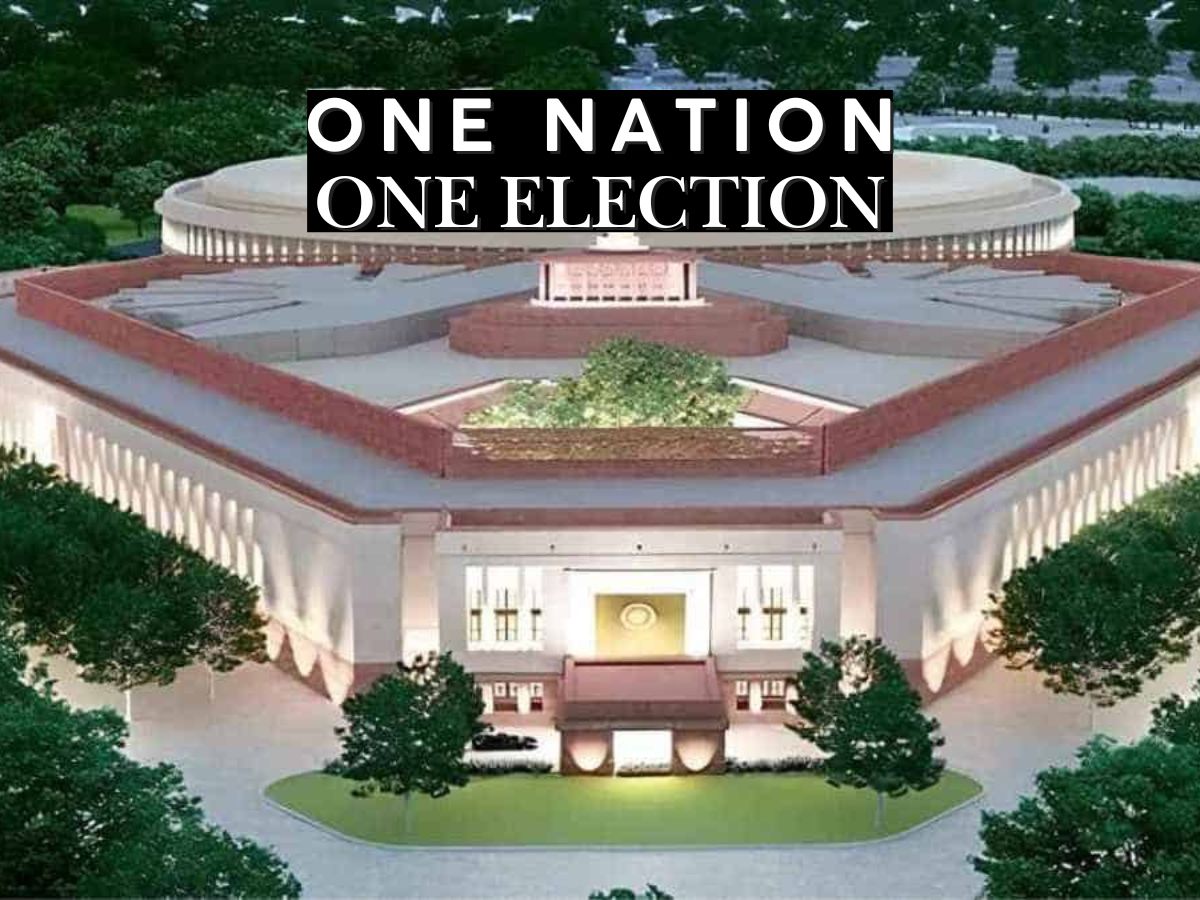
‘One Nation, One Election’ Bill Sparks Heated Debate Among Political Leaders in India
New Delhi, December 13: The Union Cabinet on Thursday approved the landmark ‘One Nation, One Election’ bill, paving the way for its introduction in Parliament. The proposal, aimed at holding simultaneous elections for Lok Sabha, State Assemblies, urban bodies, and panchayats, has sparked a nationwide debate, dividing political leaders across party lines.
The BJP-led NDA alliance welcomed the bill, citing its potential to save time and resources while unifying the electoral process. Assam Chief Minister Himanta Biswa Sarma expressed strong support, highlighting how staggered elections disrupt development. “When Assembly and Lok Sabha elections are not held together, development work stops,” he said, endorsing Prime Minister Narendra Modi’s vision for simultaneous polls.
Chhattisgarh Chief Minister Vishnu Dev Sai called the decision “beneficial for the country,” adding that it would save time and money. Haryana Minister Anil Vij praised PM Modi’s nationalist leadership, describing the move as essential for a “Viksit Bharat” (Developed India).
Leaders from JD(U) and LJP (Ram Vilas) echoed support, with JD(U) MP Sanjay Kumar Jha stating that Nitish Kumar had always advocated simultaneous elections. Meanwhile, Congress MP Jairam Ramesh demanded the bill be sent to a Joint Parliamentary Committee (JPC) for review, labeling it a threat to democracy.
Opposition leaders voiced strong objections, arguing that the bill undermines federalism. Tamil Nadu Chief Minister MK Stalin called it an “anti-democratic move” that would erase regional voices and disrupt governance. West Bengal Chief Minister Mamata Banerjee termed the legislation “authoritarian” and vowed to oppose it in Parliament.
AIMIM MP Asaduddin Owaisi declared the bill “against the basic structure of the Constitution,” adding that it would weaken regional parties and dilute local issues. Congress MP Imran Masood accused the government of diverting attention from pressing national concerns.
Delhi’s AAP leader and former Chief Minister Arvind Kejriwal criticized the bill as misplaced, emphasizing the need for reforms in healthcare and education instead. DMK MP T Siva and Shiv Sena (UBT) MP Arvind Sawant called for detailed debates in Parliament and a JPC to address the complexities of simultaneous elections.
Prime Minister Modi hailed the Cabinet’s approval as a significant step to enhance democracy. “This is an important step towards making our democracy even more vibrant and participative,” Modi wrote on X.
The proposal stems from recommendations made by a high-level committee chaired by former President Ram Nath Kovind. The bill aims to implement simultaneous polls within 100 days, a move supporters believe will streamline governance but opponents warn could disrupt India’s federal structure.
Уникальные функции 1xbet: официальный сайт, зеркало, рабочее на сегодняВ современном мире онлайн-ставок футбол и другие…
Coronavirus disease 2019 COVID-19 is a contagious disease caused by the coronavirus SARS-CoV-2. In January…
Sie beansprucht die Smartphone-Ressourcen gar nicht, sodass Sie unser mobile Ausgabe as part of angewandten…
Once they packages, open the fresh APK file inside the Downloads folder of the unit…
First-look poster surprises fans expecting Don Lee announcement February 27, 2026: Filmmaker Sandeep Reddy Vanga…